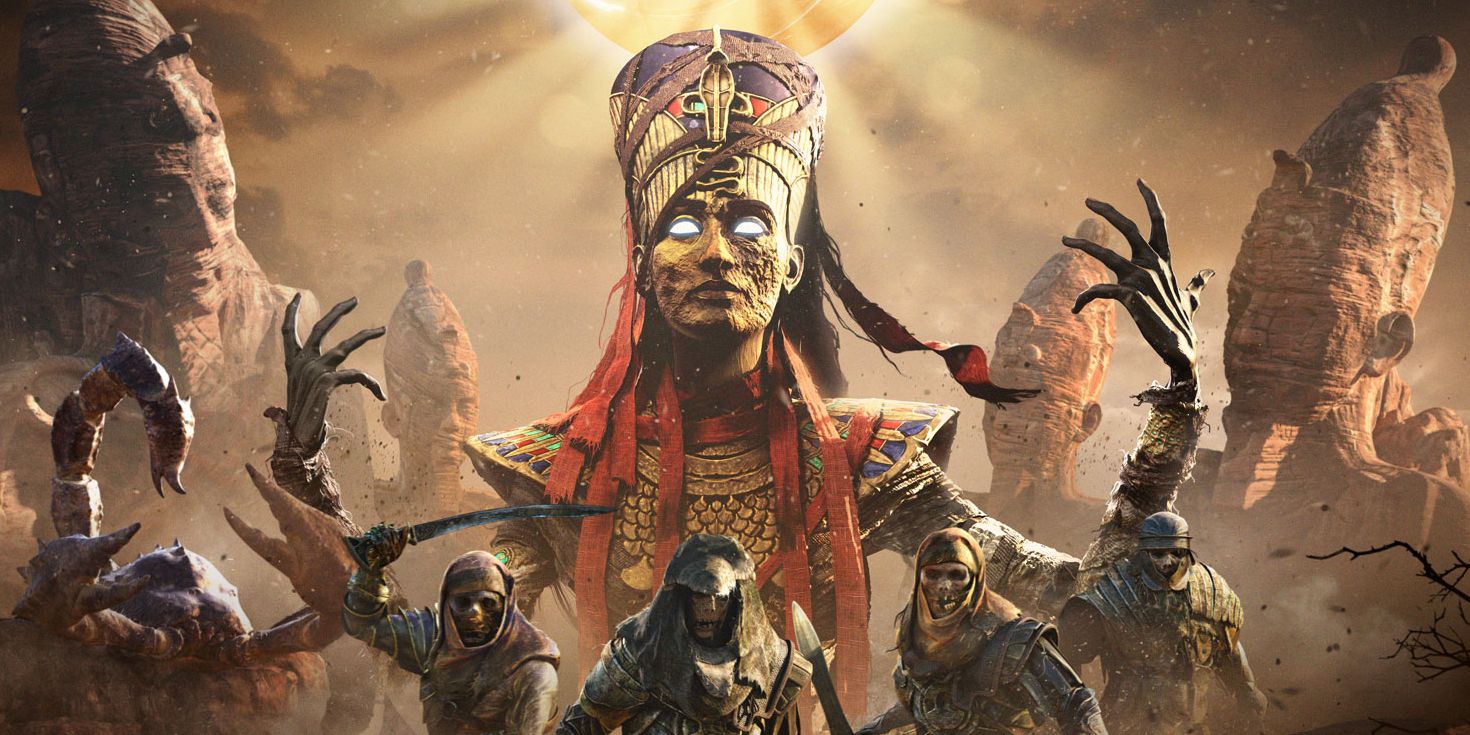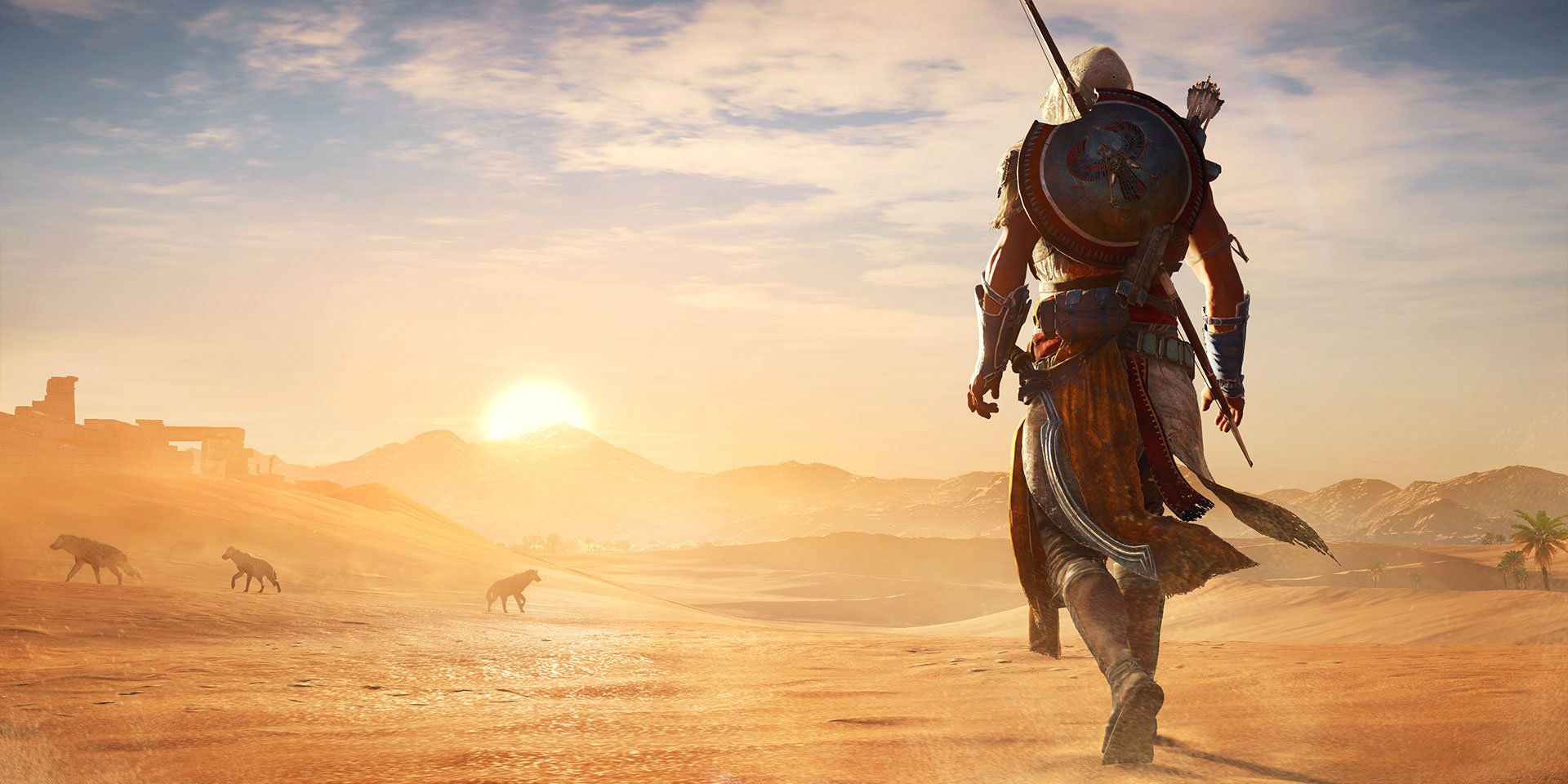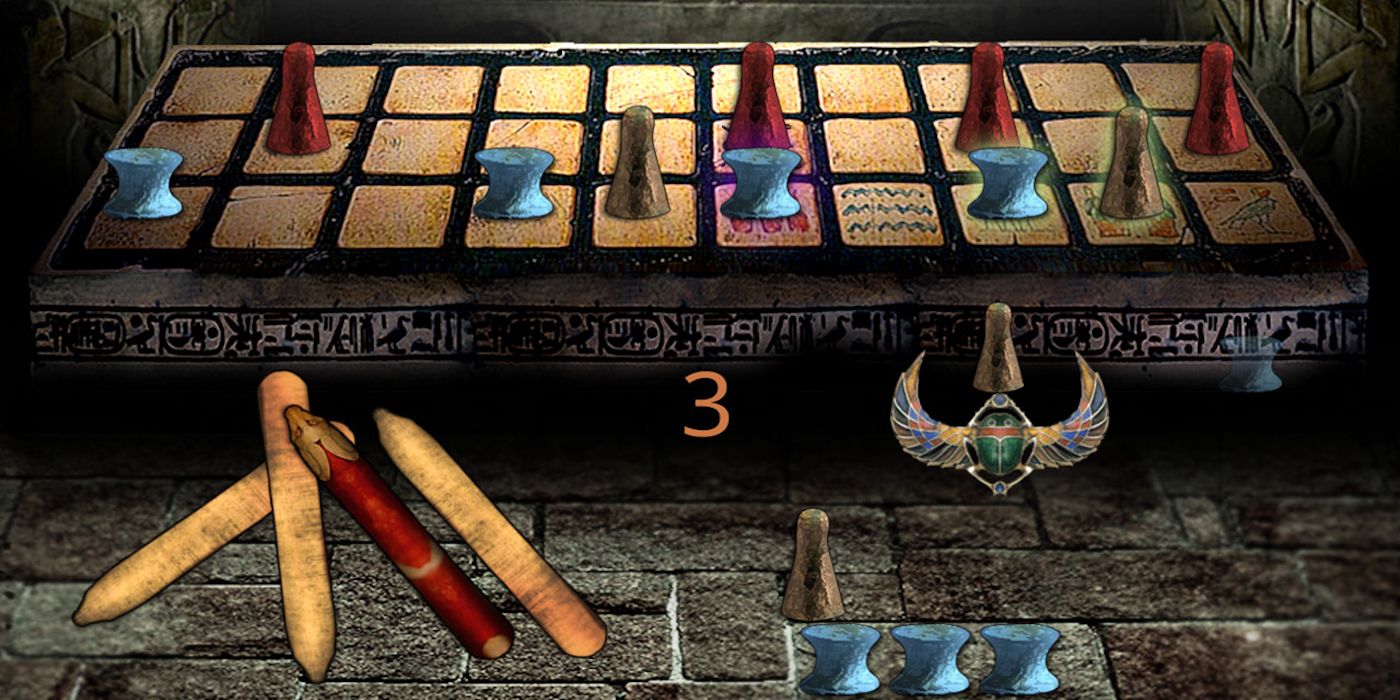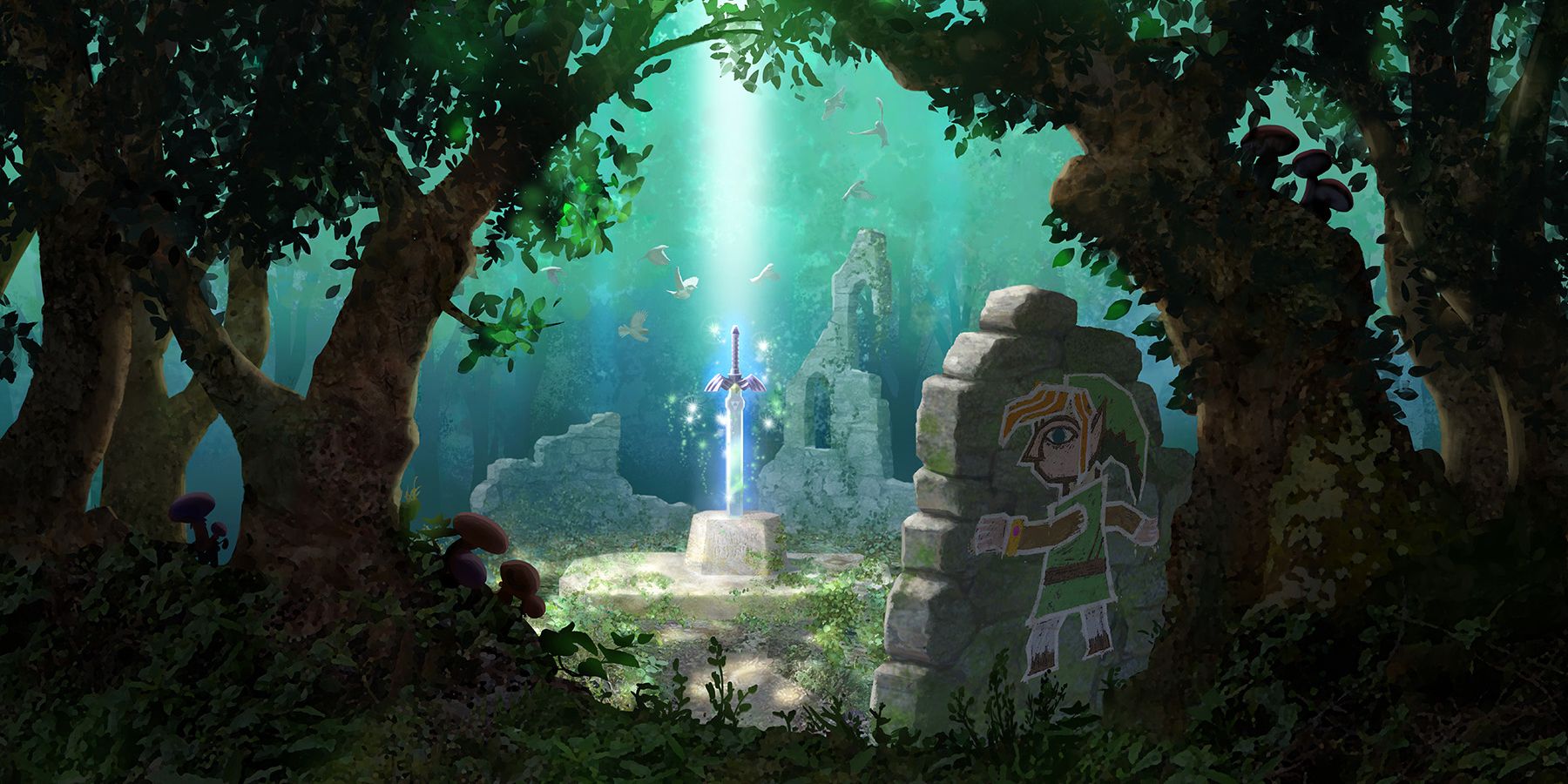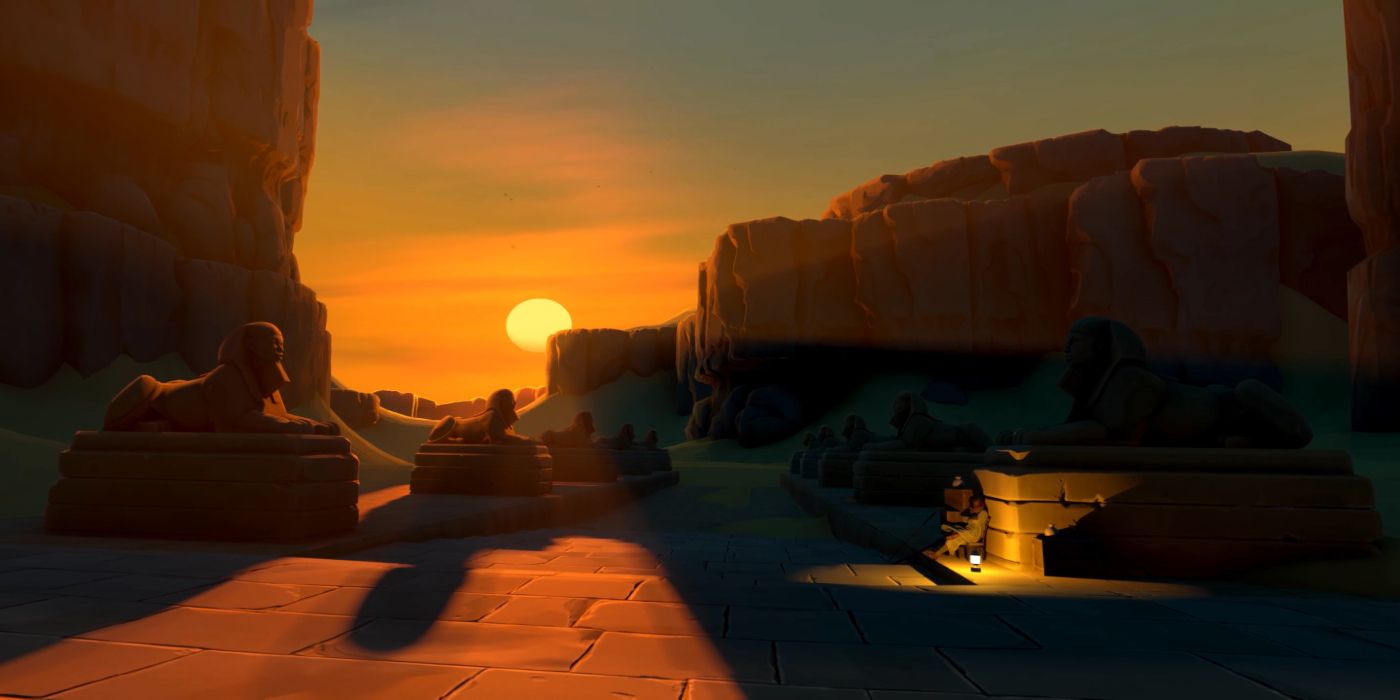From the original Kid Icarus in the eighties to more recent examples like the upcoming Hades, video games have long been fascinated with mythology. The gods, monsters, and heroes of ancient cultures have populated games across multiple genres, been cast in major roles as villains and protagonists, and appeared in subtle references, like the AI names in Horizon Zero Dawn.
While many games have incorporated Egyptian mythology alongside other cultures, such as Titan Quest and Smite, comparatively fewer games have focused exclusively on the Egyptian pantheon. Egypt’s mythological tradition is rich with interesting characters, compelling stories, and complex lore — all of which are key elements in building an immersive, exciting game world.
Here are three games that have taken advantage of Ancient Egypt’s rich mythology.
Assassin’s Creed Origins
Origins was certainly a fitting title for this 2017 entry in the Assassin’s Creed franchise. Set in Ancient Egypt near the end of the Ptolemaic period (A.K.A. the time of Cleopatra, who appears in the game), Assassin’s Creed Origins took the franchise further back in time than ever before (at least, until the release of Assassin’s Creed Odyssey the following year). Although set in the real world, with portions of the game set in modern times, Origins also offers an entire DLC dedicated exclusively to Egyptian mythology. Curse of the Pharaohs follows the player character as they attempt to halt a curse the gods have inflicted on the land as retribution for the crimes of grave robbers. Players must fight a variety of thrilling mythological beasts and even enter the Egyptian afterlife, opening gamers up to a literal whole new world.
Egyptian Senet
Frequently cited as the world’s oldest board game, Senet was transformed into a video game by indie developer Ezzat Studios in 2013. The game serves as a metaphor for the afterlife: pawns moving across the board represent the human soul as it wanders through the various trials and tribulations of the Egyptian afterlife, as described in the famous Book of the Dead. The goal is to reach the final space and leave the board, just as Ancient Egyptians sought to eventually leave the afterlife and be reborn. Essentially a board game simulator, Egyptian Senet does an excellent job of evoking the game’s symbolic importance in Ancient Egyptian religion through its music and artwork, giving players a fascinating look into how Ancient Egyptians perceived concepts of death and the afterlife.
The Legend of Zelda: A Link Between Worlds
A direct sequel to the 1991 landmark title A Link to the Past, The Legend of Zelda: A Link Between Worlds received near universal acclaim upon its release in 2013. Though mythological influence is not a defining factor of Zelda games, A Link Between Worlds contains subtle references to Egyptian mythology. The game grants Link a new ability to merge onto walls as a painting, allowing the player to enter previously inaccessible areas. In addition to incorporating the traditional Ancient Egyptian art style of both a profile and front-facing figure, Link’s use of this new power has mythological significance.
Merging onto walls as a painting allows Link to enter Lorule, a dark mirror version of the game’s setting, Hyrule. Ancient Egyptians believed that the paradise at the end one’s journey through the netherworld was a mirror image of the human world. They believed tomb paintings were a form of contact between the dead and the living realms, and that some of the images would come to life to assist the deceased on their journey. Link’s ability to traverse his mirror worlds as a wall painting evokes this concept, and also provides a fun new element of gameplay to the long-standing franchise.
Honorable Mention: In the Valley of Gods
Announced in 2017, In the Valley of Gods is a first-person adventure game that follows a disgraced former archaeologist as she explores the secrets of ancient tombs in 1920s Egypt. Unfortunately, the project is currently on hold, with many fans wondering if the game has made a premature trip to the afterlife since Camp Santo’s acquisition by Valve in 2018. With the game still under wraps, it’s unclear exactly what mythological references may be in store for players, but if the studio’s award-winning Firewatch is any indication, it will definitely be worth the wait.
There are many more games which take inspiration from Egyptian myths and culture, but the ones listed above are some of the best.

